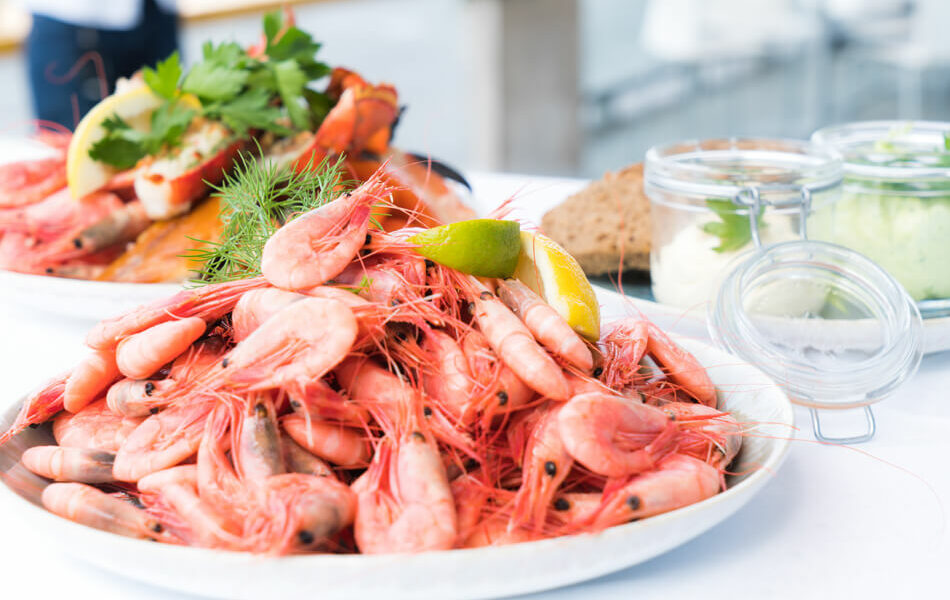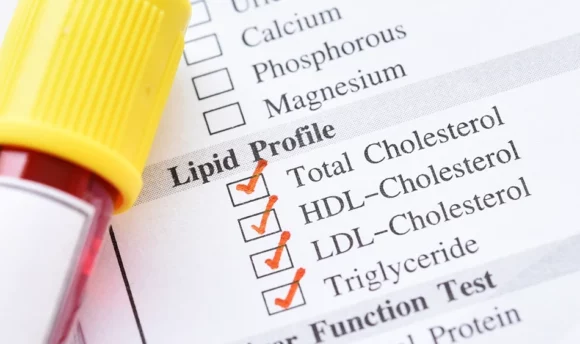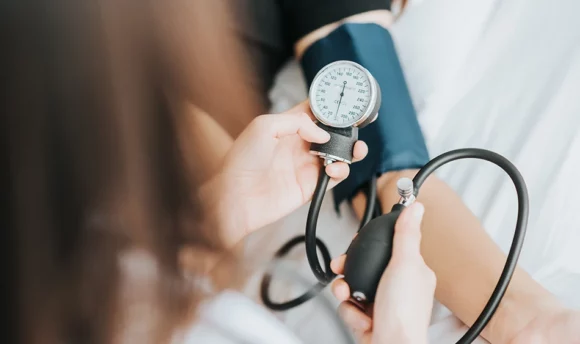Is Shrimp High in Cholesterol? What You Should Know
Despite concerns about shrimp’s cholesterol content, the truth may surprise you.

Avoiding foods can be challenging when you have high cholesterol levels.
Certain meals may spike cholesterol in your body, leading to a greater risk of heart disease and high blood pressure. To prevent this from happening, most people limit cholesterol-heavy foods and focus on other products. This could be green vegetables that are packed with nutrients.
So, what about seafood like shrimp? Eating plenty of low-calorie foods is great for losing weight, but they’re also the key to improving your overall health. Seafood especially contains plenty of vitamins and minerals, but they are also notably high in cholesterol content.
In this article, you’ll discover whether you can eat shrimp while having high cholesterol levels.
Is Shrimp High in Cholesterol?
Shrimp does contain cholesterol, but its overall effect on cholesterol levels is minimal for most individuals. As part of a balanced diet, shrimp can be enjoyed as a nutrient-rich and tasty seafood option.
Shrimp is perfectly safe to eat on your diet. Some people might eat this food on a ketogenic diet to lose weight and increase HDL cholesterol – the good kind of cholesterol that removes other forms of fat from your bloodstream, preventing long-term health problems like heart disease.
People with certain health conditions, such as familial hypercholesterolemia, may need to limit their dietary cholesterol intake more strictly. A healthcare professional or registered dietitian should be consulted to determine individualized dietary guidelines in such cases.
Shrimp cholesterol content
A 100g portion of uncooked shrimp has 161mg of cholesterol. This amount can seem like too much for people who have heart-related conditions. However, that doesn’t mean shrimp increases the cholesterol content in your body or damages any blood vessels.
You can eat just 50 grams of shrimp to limit your cholesterol intake for the day. Shrimp isn’t a food you need to have every day with meals. Even though shrimp has more cholesterol compared to other seafood, you don’t have to remove this from your diet completely.
Just remember that cholesterol-rich foods with a high-fiber content can’t harm you. This is healthy for your body and will keep blood sugar levels in check. You can add dietary fiber supplements to your meal plans if you wish to lower cholesterol blood levels.
Is Shrimp Heart-Healthy?
Yes, shrimp can promote both brain and heart health. It contains omega-3 fatty acids that decrease triglycerides and lower high blood pressure. This will reduce the risk of health problems like heart disease, blood clots, aneurysms, strokes, and metabolic syndrome.
Most people would assume that shrimp increases the amount of cholesterol that clogs your blood vessels. However, this isn’t true, as dietary cholesterol strengthens the high-density lipoprotein in your body. This HDL is needed to make bile acids that digest fat from meals.
Shrimp doesn’t have saturated fat either, making it great for your heart health. Saturated fat can increase LDL cholesterol and puts you more at risk of cardiovascular disease. You can eat shrimp once or twice a week without worrying about your heart’s natural functions.
Is Shrimp Bad for High Blood Pressure?
No, the healthy fats in shrimp can lower your blood pressure. Anything with omega-3s can strengthen your heart and promote smooth blood flow in arteries. The high-quality protein in shrimp (around 20.1g of it) will also prevent new-onset hypertension.
Adequate shrimp consumption means you’re getting enough protein, magnesium, and calcium – three minerals that support healthy blood flow. Eating the right nutrients ensures your arteries and blood vessels don’t fail. Shrimp is one of those foods that can’t raise your blood pressure.
Some people may go on the keto diet to maintain healthy blood pressure levels. Shrimp is keto-friendly and can fuel your body with heart-strengthening nutrients. Potassium is another great mineral that eases tension in blood vessel walls, further lowering restricted blood flow.
Why Is Shrimp High in Cholesterol?
Shrimp is high in cholesterol because it contains lots of healthy fatty acids. Cholesterol is a waxy fat-like substance found in most animal-based foods. This type of fat is called dietary cholesterol – lipids that enter your body through red meats, seafood, and dairy.
Products with omega-3s strengthen your plasma lipoproteins, meaning they can’t raise your total cholesterol. Foods high in unsaturated fat content will have more HDL cholesterol that prevents heart disease. Only certain foods like shrimp can offer the same health benefits.
Full-fat yogurt, processed meat, cheese, and baked goods are just a few examples of non-friendly foods. Cooked shrimp is perfectly safe for you, even if it has a high amount of cholesterol. You should definitely incorporate this healthy seafood into your balanced diet.
FAQs
No, shrimp have plenty of nutrients that benefit your health. They are high in protein, selenium, choline, and vitamin B12 – minerals known to support both metabolic and immune functions. Protein is especially important for helping the body repair and make new cells.
Shrimp is a healthy food that contains minimal calories, fats, and sugars. This means shrimp are great for weight loss, as they won’t take up much space on your daily calorie allowance. You can mix shrimp with other low-calorie foods like spinach, bell peppers, whole grains, and beans.
Yes, you can eat shrimp every day, but only do this in moderate amounts. There is 161mg of cholesterol in 100g of raw shrimp, so keep that in mind when eating it regularly. The maximum daily amount of cholesterol is 300 mg, meaning shrimp takes up around 63% of that.
There is only 0.51g of fat per 100g serving of raw shrimp. This seafood contains almost no fat at all, making it great for a weight loss diet. Just be aware that if you’re trying the ketogenic diet, you need to eat more healthy fats alongside shrimp; otherwise, you’ll have no energy.
A Word From Our MD
Shrimp might have lots of cholesterol, but that doesn’t mean it will harm your health.
Your system needs this dietary cholesterol to make bile acids and ensure the body tightly regulates blood flow. It’s normal to think that 161mg of cholesterol is a lot, but you can always half this amount. There’s no need to eat shrimp every day or include it in most meals.
Saturated fat and trans fats are the ones you should be aware of. Too much of both can seriously damage your cardiovascular functions and promote heart disease. Stick to eating seafood containing dietary cholesterol, as this lowers LDL cholesterol in your body.
Some people might also be allergic to seafood, so be careful when eating it and always check in with the doctor. If you have an allergic reaction, seek medical help immediately. You can also gain medical advice if you suffer from certain health conditions and want to avoid heart issues.
Conclusion
So, is shrimp healthy for those with high blood cholesterol?
Shrimp only contains dietary cholesterol that is great for preventing heart disease. This food isn’t something you need to have in every meal, but it’s worth implementing into a healthy diet. Remember that shrimp has plenty of important nutrients that can lower blood cholesterol levels.

















































 Select your language:
Select your language: 








